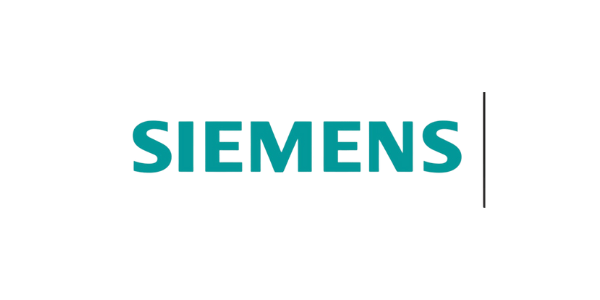Introduction
Artificial intelligence transforms industries worldwide. Germany leads this revolution in Europe. The country hosts innovative startups and research centers. Furthermore, they specialize in AI-driven automotive solutions. Additionally, Germany excels in biotech applications and publicly traded AI companies.
This guide explores Germany’s AI landscape. Moreover, it profiles key players across three sectors. Whether you’re an investor or entrepreneur, this overview helps. Similarly, tech enthusiasts gain valuable insights. In fact, Germany’s AI ecosystem shapes Europe’s future.
Why Germany Dominates European AI
Germany’s AI leadership stems from several factors. First, the country has world-class engineering universities. Second, substantial government funding supports AI research. Third, German companies have deep industrial expertise.
Engineering Excellence: Germany’s technical universities produce skilled graduates annually. For example, TU Munich and RWTH Aachen lead AI research. Consequently, companies access top talent pools.
Government Investment: The German government invests billions in AI. Additionally, federal programs support AI startups. Furthermore, public-private partnerships accelerate development.
Industrial Heritage: Germany’s manufacturing expertise enhances AI adoption. Moreover, automotive and engineering sectors drive innovation. As a result, practical AI applications emerge faster.
Research Infrastructure: Max Planck Institutes conduct cutting-edge AI research. Similarly, Fraunhofer Society develops commercial applications. Therefore, academic-industry collaboration thrives.
Leading German AI Automotive Companies
Germany’s automotive sector revolutionizes transportation through AI. Meanwhile, traditional carmakers embrace autonomous driving. Additionally, new AI companies emerge in mobility solutions.
BMW Group

www.bmw.com
BMW leads automotive AI innovation globally. The company develops autonomous driving systems. Furthermore, BMW uses AI for manufacturing optimization. Additionally, their AI enhances customer experiences.
BMW’s AI division creates intelligent vehicle systems. Moreover, machine learning improves safety features. Similarly, predictive maintenance reduces downtime. Consequently, BMW maintains its premium market position.
Key Solutions:
- Autonomous driving AI systems
- Smart manufacturing optimization
- Predictive vehicle maintenance
- AI-powered customer services
Mercedes-Benz Group
www.mercedes-benz.com

Mercedes-Benz pioneers luxury automotive AI. The company integrates AI across vehicle functions. Additionally, they develop advanced driver assistance systems. Furthermore, AI enhances manufacturing processes.
Their MBUX system uses natural language processing. Moreover, AI personalizes driving experiences. Similarly, autonomous features improve safety. Therefore, Mercedes leads premium AI automotive markets.
Key Solutions:
- Advanced AI driver assistance
- Natural language vehicle interfaces
- Intelligent manufacturing systems
- Predictive quality control
German AI Biotech Innovation Leaders
Germany’s biotech sector leverages AI for medical breakthroughs. Meanwhile, companies develop drug discovery platforms. Additionally, AI enhances diagnostic accuracy and treatment personalization.
BioNTech
www.biontech.de

BioNTech revolutionizes medicine through AI-driven drug development. The company uses machine learning for vaccine research. Furthermore, AI accelerates clinical trial processes. Additionally, their platforms improve treatment outcomes.
BioNTech’s AI analyzes patient data for personalized therapies. Moreover, machine learning identifies drug targets faster. Similarly, AI optimizes vaccine formulations. Consequently, breakthrough treatments reach patients quicker.
Key Solutions:
- AI-powered drug discovery platforms
- Machine learning vaccine development
- Personalized treatment algorithms
- Clinical trial optimization systems
CureVac
www.curevac.com

CureVac develops AI-enhanced mRNA therapeutics. The company uses artificial intelligence for drug design. Furthermore, AI optimizes molecular structures. Additionally, machine learning accelerates development timelines.
Their AI platform analyzes genetic sequences rapidly. Moreover, predictive models improve success rates. Similarly, automated systems reduce development costs. Therefore, CureVac delivers innovative treatments efficiently.
Key Solutions:
- AI-driven mRNA design
- Predictive therapeutic modeling
- Automated drug optimization
- Machine learning research tools
Publicly Traded German AI Powerhouses
Germany hosts several publicly traded AI companies. Meanwhile, these firms offer investment opportunities. Additionally, they demonstrate AI’s commercial viability across sectors.
SAP
www.sap.com

SAP leads enterprise AI software globally. The company integrates AI into business applications. Furthermore, machine learning enhances data analytics. Additionally, AI automates business processes efficiently.
SAP’s AI platforms serve millions of users worldwide. Moreover, intelligent automation reduces manual work. Similarly, predictive analytics improve decision-making. Consequently, businesses achieve better operational efficiency.
Key Solutions:
- Enterprise AI automation platforms
- Intelligent business analytics
- Machine learning data processing
- Automated workflow optimization
Siemens
www.siemens.com

Siemens applies AI across industrial automation. The company develops intelligent manufacturing systems. Furthermore, AI optimizes energy distribution. Additionally, predictive maintenance prevents equipment failures.
Siemens’ AI solutions enhance industrial productivity. Moreover, smart systems reduce energy consumption. Similarly, automated quality control improves products. Therefore, Siemens leads industrial AI adoption.
Key Solutions:
- Industrial AI automation systems
- Smart energy management platforms
- Predictive maintenance solutions
- Intelligent manufacturing controls
AI Research Centers in Germany
Germany’s research institutions drive AI innovation. Meanwhile, academic centers collaborate with industry. Additionally, government institutes develop practical applications.
Max Planck Institute for Intelligent Systems: This institute conducts fundamental AI research. Moreover, scientists develop new machine learning algorithms. Similarly, robotics research advances automation capabilities.
German Research Center for Artificial Intelligence (DFKI): DFKI creates commercial AI applications. Furthermore, researchers work with industry partners. Additionally, the center trains AI specialists.
Fraunhofer Society: Multiple Fraunhofer institutes focus on AI. Moreover, they develop industrial applications. Similarly, these centers bridge research and commercialization.
AI Consulting Ecosystem
Germany’s consulting sector supports AI adoption. Meanwhile, firms help businesses implement AI solutions. Additionally, specialized consultants address industry-specific needs.
Accenture Germany: Provides comprehensive AI transformation services. Moreover, consultants help enterprises adopt AI technologies. Similarly, they manage organizational changes effectively.
McKinsey Germany: Offers strategic AI consulting for large corporations. Furthermore, advisors develop AI implementation roadmaps. Additionally, they measure AI investment returns.
Roland Berger: Specializes in AI strategy for European markets. Moreover, consultants understand German business culture. Similarly, they navigate regulatory requirements efficiently.
German Automotive AI Innovation
AI transforms Germany’s automotive industry fundamentally. Meanwhile, companies develop autonomous driving capabilities. Additionally, smart manufacturing improves production efficiency.
Autonomous Driving Development: German automakers invest heavily in self-driving technology. Moreover, AI systems process sensor data in real-time. Similarly, machine learning improves safety algorithms continuously.
Smart Manufacturing: AI optimizes automotive production lines. Furthermore, predictive systems prevent equipment breakdowns. Additionally, quality control systems detect defects automatically.
Connected Vehicle Services: AI enables new mobility services. Moreover, vehicle-to-vehicle communication improves traffic flow. Similarly, predictive maintenance alerts drivers proactively.
Biotech AI Applications
Germany’s biotech sector embraces AI for medical advancement. Meanwhile, companies accelerate drug discovery processes. Additionally, AI improves diagnostic accuracy significantly.
Drug Discovery Acceleration: AI platforms identify promising compounds faster. Moreover, machine learning predicts drug interactions. Similarly, automated screening reduces development time.
Personalized Medicine: AI analyzes patient genetics for customized treatments. Furthermore, algorithms optimize dosing protocols. Additionally, predictive models improve treatment outcomes.
Clinical Trial Optimization: AI selects optimal patient populations. Moreover, automated systems monitor trial progress. Similarly, predictive analytics reduce trial failures.
Investment Opportunities in German AI
Germany’s AI sector attracts significant investment. Meanwhile, publicly traded companies offer market exposure. Additionally, venture capital funds support promising startups.
Public Market Access: Major German companies integrate AI extensively. Moreover, investors can access AI growth through established stocks. Similarly, ETFs provide diversified AI exposure.
Venture Capital Ecosystem: German VC funds focus on AI startups. Furthermore, international investors enter German markets. Additionally, government programs support early-stage funding.
Strategic Partnerships: Large corporations partner with AI startups. Moreover, these collaborations accelerate development. Similarly, partnerships provide market validation.
Challenges and Opportunities
German AI companies face specific challenges. However, significant opportunities exist for growth. Moreover, addressing these challenges creates competitive advantages.
Talent Competition: Skilled AI professionals are in high demand. Meanwhile, companies compete globally for talent. Additionally, universities increase AI program enrollment.
Regulatory Compliance: European AI regulations affect German companies. However, compliance creates trust with customers. Moreover, ethical AI becomes a competitive advantage.
Market Access: German companies serve global markets effectively. Furthermore, EU market access provides scale opportunities. Additionally, engineering reputation opens international doors.
Technology Transfer: Research institutions collaborate with industry. Moreover, this accelerates commercial applications. Similarly, startups license university technologies.
Future of German AI
Germany’s AI future appears promising. Meanwhile, continued investment drives innovation. Additionally, industry 4.0 initiatives accelerate adoption.
Industrial Leadership: Germany will lead industrial AI applications. Moreover, manufacturing expertise provides competitive advantages. Similarly, automotive AI shapes global standards.
Research Excellence: Academic institutions maintain global leadership. Furthermore, fundamental research enables breakthrough applications. Additionally, talent development supports long-term growth.
Economic Impact: AI contributes significantly to German GDP. Moreover, productivity improvements benefit entire economy. Similarly, export opportunities increase substantially.
Conclusion
Germany establishes itself as Europe’s AI powerhouse. Moreover, the country excels in automotive and biotech applications. Additionally, publicly traded companies offer investment opportunities.
German AI companies leverage strong engineering traditions. Furthermore, government support accelerates development. Similarly, research institutions provide technological foundations.
Investors should monitor Germany’s AI sector closely. Moreover, breakthrough innovations emerge regularly. Additionally, established companies integrate AI extensively. Therefore, Germany represents significant AI investment opportunities.
Frequently Asked Questions
What makes Germany attractive for AI companies?
Germany offers excellent engineering universities and substantial research funding. Moreover, strong automotive and manufacturing sectors drive AI adoption. Additionally, government programs support AI development.
Which German AI companies lead automotive innovation?
BMW and Mercedes-Benz pioneer automotive AI applications. Furthermore, they develop autonomous driving systems. Additionally, AI enhances manufacturing and customer experiences.
How does AI impact German biotech?
BioNTech and CureVac use AI for drug discovery. Moreover, machine learning accelerates vaccine development. Additionally, AI enables personalized treatment approaches.
What investment opportunities exist in German AI?
SAP and Siemens offer public market AI exposure. Furthermore, venture capital funds support AI startups. Additionally, partnerships provide strategic investment options.
How can international companies collaborate with German AI firms?
German companies welcome international partnerships. Moreover, they offer European market access. Additionally, engineering expertise creates valuable collaborations.

